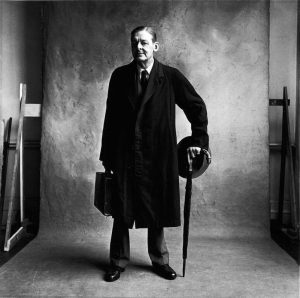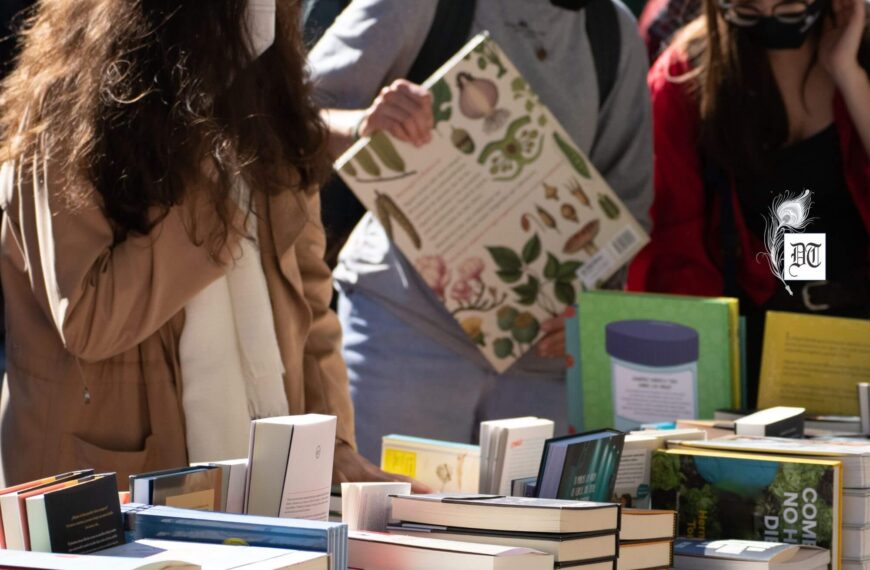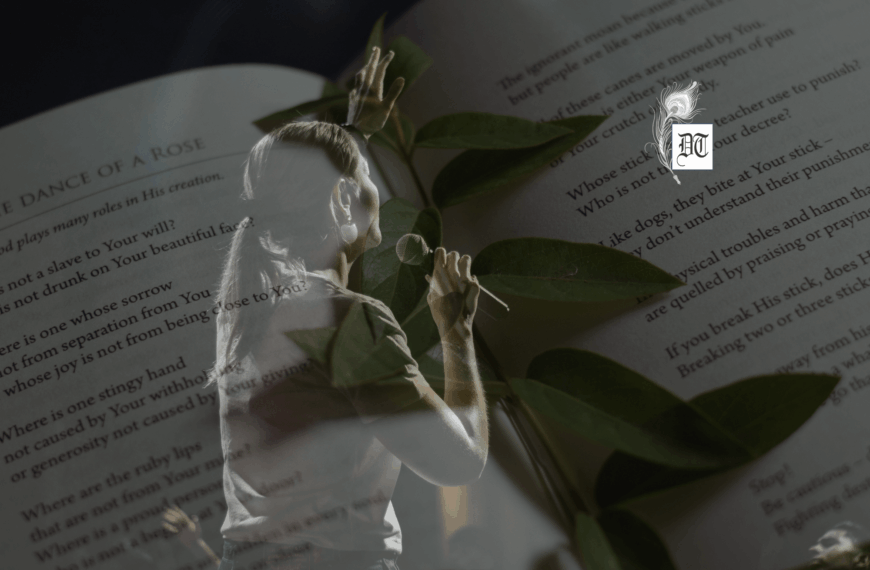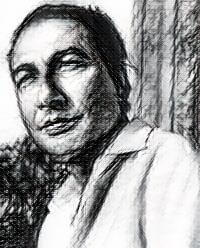This article sets out to study the theory of impersonality advanced by T.S. Eliot and to bring into focus the unexplored possibilities of the idea of impersonality in the creation and criticism of poetry. A critique by Dr. Jernail, exclusively for Different Truths.
This article sets out to study the theory of impersonality advanced by T.S. Eliot and to bring into focus the unexplored possibilities of the idea of impersonality in the creation and criticism of poetry. Eliot thinks that a poet has his significance only in relation to the dead poets, in other words, the tradition that lies behind him. He also thinks that the emotion that a poem evokes i.e. artistic emotion is different from the personal emotion of the poet, and while talking of mature and immature poets, he remarks: “The difference between the mind of a mature poet and an immature one is that, a mature poet has more finely perfected medium.”
Eliot goes on to suggest that art emotion and personal emotion are different and poet should be passive and impersonal, like a catalyst. The business of the poet, thinks Eliot, is not to find new emotions, but to use the ordinary ones and in working them up in poetry, to express feelings which are not actual emotions at all.
Eliot goes on to suggest that art emotion and personal emotion are different and poet should be passive and impersonal, like a catalyst. The business of the poet, thinks Eliot, is not to find new emotions, but to use the ordinary ones and in working them up in poetry, to express feelings which are not actual emotions at all. He makes a significant observation: that the emotion of art is impersonal. It has its life in the poem and not in the history of the poet. So, honest criticism and sensitive appreciation is directed not upon the poet but upon the poetry. The biography of the poet is not to be studied; the structure of the poem and its evocation powers are important. All these ideas need to be reviewed in the context of contemporary times, to see if the idea of impersonality yields more meanings, which have remained in oblivion till now. The scope of this study is not the theory of impersonality alone, but it aims at going beyond the theory and find out its relevance in other ways too, and also to challenge it if needed.
While it is not difficult to agree with Eliot about his idea of tradition and individual talent, and even with his extreme statement that a poet has his significance only in relation to the dead poets, he appears to be forgetting here that it is not the impersonality but the personality of the poet that affects the tradition and which comprises the individual talent. Even while being a part of the tradition, a poet stands apart, in order to affect its flow. Here, what is emphasised is not his impersonality, but his personality as a poet.
When Eliot wants a poet to become a passive medium only, and to create an artistic emotion, and advises honest criticism to be focused on the poetry, rather than the poet, he seems to be slipping into too much of impractical idealism.
When Eliot wants a poet to become a passive medium only, and to create an

artistic emotion, and advises honest criticism to be focused on the poetry, rather than the poet, he seems to be slipping into too much of impractical idealism. It is not possible to divide the poet and his poetry. Particularly, the romantics who mostly begin with: ‘I’. However hard we may try to explain this ‘I’ away, and assert that it is not the poet’s personality, yet, in final analysis, it is not possible to look upon poetry as we look upon history. Wordsworth, Keats, Shelley, Burns – are individuals, who have strong personalities, and in their poems, they express themselves through the poetic medium. I find it very difficult to put forward Wordsworth’s poetry without his individual stamp. Keats too has an individual style of writing. If we say, style is the man, this term also individualizes the poetic emotion. Coming from the same Romantic tradition, Shelley and Wordsworth are distinguished by their individual style, and thinking patterns. Two poems created by each of them, even if read without reference to the poets, will finally raise the poet from their bones and arteries.
Poet’s DNA
The idea of DNA has to be applied to poetry as well. Whatever a poet writes, his personality, his biography, his thinking patterns, his faith, his dreams, – all become a part of that piece of poetry, and it is too much, if not entirely atrocious, to claim that a poet can be separated from his poetry. As a laboratory experiment, it may be possible, but in reality, a poet’s DNA travels in his poetry as a father’s in his progeny. Keeping this in view, I find the theory of impersonality severely limited in its scope, and highly impractical, because, you cannot access the truth of a piece of art, unless it is understood in terms of its tradition, and what is the tradition if not an amalgam of personalities of different poets, dead or alive?
As a laboratory experiment, it may be possible, but in reality, a poet’s DNA travels in his poetry as a father’s in his progeny. Keeping this in view, I find the theory of impersonality severely limited in its scope, and highly impractical
It is possible to agree with Eliot that while processing the emotions, a poet should be passive, or his personality must not intervene, or in other words, if we think of Keats ‘Ode to Autumn’, the poet is absent from the pom. He has put forward a few images from which he wants us to have an idea of the autumn season. Here too, I would suggest that the idea of impersonality is present in its superficial form. A poet, or an author lives in the sequence of ideas that he chooses to build a poem or a fiction. So, here too, I find the theory crippled by its insistence on impersonality.
It is going too far to expect that a poet can be reduced to a bi-scope seller, who gives a few images and each watcher has his own joy. It is not impersonality, it is loss of personality, no one can put up with, and a poet, the least.
It is going too far to expect that a poet can be reduced to a bi-scope seller, who gives a few images and each watcher has his own joy. It is not impersonality, it is loss of personality, no one can put up with, and a poet, the least. I find these ideas controvertible because personality intrudes in the selection of images, in the selection of songs that you enjoy in your car; at least in their sequence, your personality intervenes. And then who can deny, why you write poetry? Because something has affected you. You. The poet. And a personal emotion has cropped up. Poetry carries that emotion to the readers. Poetry is a bridge between the poet and his readers. Can there be a bridge if there is only one bank of a river? Or can we image a river with one bank only?
Impersonality as a Universal Emotion
The idea of impersonality can be put to another interpretation, which falls outside the jurisdiction of Eliot’s perception of Impersonality. Impersonality has another personality. And this personality is called objectivity. For everything you are describing, there are several angles from which it can be described. If you are a person involved in a fight, you will simply focus on what you have to say. If you are a neighbor, you will listen to both the parties. But if you are an uninvolved journalist, you will look at the event from a wider perspective. For you then, what matters is not I and You, but he, and they. And, you will employ your knowledge of the history of that area to bear upon that fighting incident. This will be an uninvolved, impersonal assertion of a reality which is larger, and beyond the scope of individuals who are involved in the fight.
Here, the idea of impersonality takes over the mantel of objectivity. A poet is a person, but at the same time, he is also a reporter. He is the ambassador of the Muse not only to sing his personal joy and pain, but also to transmute it and sing of the universal joy and universal pain too.
Here, the idea of impersonality takes over the mantel of objectivity. A poet is a person, but at the same time, he is also a reporter. He is the ambassador of the Muse not only to sing his personal joy and pain, but also to transmute it and sing of the universal joy and universal pain too. If the poet sticks to his own personal problems, and does not leave the lower terrain of experience, to express something immortal and universally relevant, he can be at the most called an immature poet. Here, I agree with Eliot, mature poets have finetuned sensibilities, and even if they start with the ‘I’, it soon melts down and they take over the wider stage, and start addressing the humanity like prophets. Transcending the personality of the poet is what in my opinion is the actual truth of the idea of impersonality. The concept of projecting images without intervention are spatial and physical endowments of poetry, but the real idea of impersonality is the idea of self-transcendence, assuming a role larger than life, and fighting the world’s battles for the universal good.
Conclusion
From the foregoing discussion, it is obvious that there is a possibility to extend upon the theory of impersonality advanced by TS Eliot. What TS Eliot says was a terrific truth when it emerged from his pen, but by this time, things have undergone ceaseless changes. So many poets and critics have expressed themselves on the composition of poetry, emotion and tradition etc. When we are writing today, we have to take cognizance of all those who have expressed themselves on this idea after Eliot. Eliot is an iconic figure, but time does not spend more time than is needed looking at them. Moreover, tradition will have no meaning if individual tributaries of wisdom are not added to it. And, it should not be forgotten, poets are highly egotistic. Personality with them is a passion. Identity and personality are two things which nobody wants to compromise. In such a scenario, the idea of impersonality appears to have lost its appeal, if not its relevance altogether. However, to be charitable to the great bard, I would suggest there is need to work on his ideas because they represent the truth of his era.
Works Cited
Sullivan, Shella, ed. (1973). Critics on T.S. Eliot: Readings in Literary Criticism. London: Allen and Unwin.
Tate, Allen, ed (1967). T.S. Eliot: The Man and His Work. London: Chatto & Windus.
Unger, Leonard, ed. (1948). T.S. Eliot: A Selected Critique. New York: Rinehart.
Williamson, George (1953). A Reader’s Guiode to T.S. Eliot: A Poem by Poem Analysis. New York: Noonday Press. ISBN 978-0-8156-05000-3
Photo from the Internet





 By
By
 By
By
